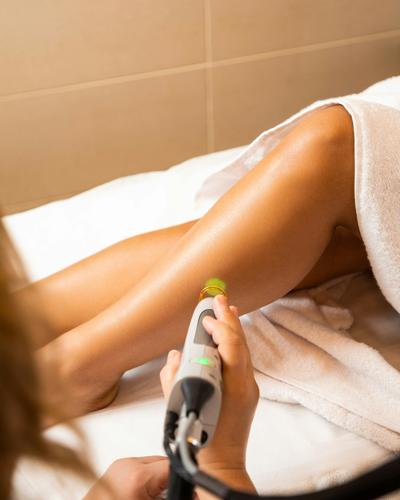Blog
Outbreak Prevention
💊 When Antivirals Suddenly Trigger More Outbreaks: What’s Going On?
If you’ve ever started taking antivirals like valacyclovir (Valtrex), acyclovir, or famciclovir — and suddenly found yourself having more outbreaks — you’re not alone. It sounds completely backwards, right? You take something that’s supposed to prevent outbreaks, and instead it feels like it’s making them worse.
Before you panic or toss your pills, let’s unpack what might really be happening.
⚙️ How Antivirals Work
Antivirals don’t kill the herpes virus — they simply stop it from replica…
Can Good Stress (a.k.a. Excitement) Cause a Herpes Outbreak?
Understanding how “happy stress” can still affect your body
We usually think of stress as something negative — deadlines, bills, conflicts, or sleepless nights. But what about good stress? You know, the butterflies before a big date, the thrill of a new job, or the excitement of a long-awaited vacation. Can that kind of stress trigger a herpes outbreak too?
Surprisingly… yes, it can.
That doesn’t mean you should stop feeling happy or excited (definitely not!). But understanding how all types …
Antivirals for Herpes: How They Work and What You Need to Know
If you’ve been diagnosed with herpes, you’ve probably heard about antivirals. They’re one of the most common tools doctors recommend to manage herpes outbreaks—and for good reason. But what exactly do they do, and how do the different brands compare? Let’s break it down.
What Antivirals do
Herpes is caused by the herpes simplex virus (HSV), which stays in the body for life. Right now, there’s no cure, but antivirals can help by:
- Reducing outbreak severity – making sores smaller, less pain…
I Shared With Somebody Who Gets Cold Sores. Do I Have Herpes Now?
We’ve all been there—you borrow a drink, share a bite of food, or maybe even use the same lip balm as a friend who casually says, “Oh, don’t worry, it’s just a cold sore.” Cue the panic: Did I just catch herpes?
Let’s break this down together.
First Things First: Cold Sores = Oral Herpes
Cold sores are caused by herpes simplex virus type 1 (HSV-1). It’s incredibly common—more than half the world’s population has it. Many people pick it up in childhood, often without even knowing.
How HSV…
Can You Shave If You Have Herpes?
Shaving might seem like a normal part of self-care, but if you’re living with herpes, it can sometimes stir up questions—and even outbreaks. The truth is, while you can shave if you have herpes, it’s important to know the risks and alternatives so you can make choices that keep your skin (and your confidence) protected.
Why Shaving Can Trigger Outbreaks
When you shave, you create tiny micro-tears in the skin—even if you don’t notice them. These small breaks in the skin can:
- Make it easier…
Does Removing Pubic Hair Increase Your Risk of Herpes?
Why hair is nature’s protective barrier—and how to protect yourself if you choose to remove it.
When it comes to grooming, many of us don’t think twice about waxing, shaving, or trimming. But here’s something you might not know: removing hair can actually increase your chances of getting—or transmitting—herpes.
Why Hair Matters
Hair isn’t just there for looks. Pubic and body hair act like a natural barrier between your skin and pathogens, including bacteria and viruses like herpes simplex…
Swimming with Herpes: Is It Safe to Hit the Pool, Sea, or River?
Summer’s calling—sunshine, swimsuits, and that irresistible urge to jump into the water. But if you live with herpes, whether it’s HSV-1 or HSV-2, you might pause before diving in and wonder: Is it safe for me to swim in public pools, the ocean, or freshwater lakes if I have herpes?
Let’s clear up the confusion. Spoiler: yes, swimming is safe—but like anything, there are a few things worth knowing.
🌊 How Is Herpes Actually Transmitted?
Herpes simplex virus (HSV) is spread through direct ski…
How Stress Worsens Herpes Outbreaks (And What Helps)
Why Your Mental Health Directly Impacts Your Immune System
If you've noticed herpes outbreaks popping up during stressful times, you're not imagining things—science proves stress and anxiety directly trigger flare-ups. Research shows that chronic stress weakens immune function, making it easier for the herpes virus to reactivate. But here's the good news: managing your mental health can be just as important as taking care of your diet, stress levels, sleep and medication or supplements you're t…
When You Have Constant Outbreaks: Here’s What We Suggest
So often people will reach out to us, asking about constant outbreaks. Outbreaks that come every month. Sometimes one outbreak hardly heals, and another one is coming. It's not only annoying to be constantly having outbreaks, but it's mentally draining. Add the fact that we want to be intimate with our partners, and not having to worry every day.
So, finally we have decided to just put it all together. Here is the things we will tell you if you ask us. (Or we will just send you a link to this b…
Can You Take Lysine Supplements Long-term?
Lysine supplements are generally considered safe for long-term use for most people. Lysine is an essential amino acid, meaning your body can't produce it on its own, so it must be obtained through diet or supplements. Many people take lysine supplements to support immune health or to manage conditions like herpes simplex virus (HSV) outbreaks.
However, as with any supplement, it’s important to use it appropriately. Here are a few key points to consider when taking lysine long-term:











